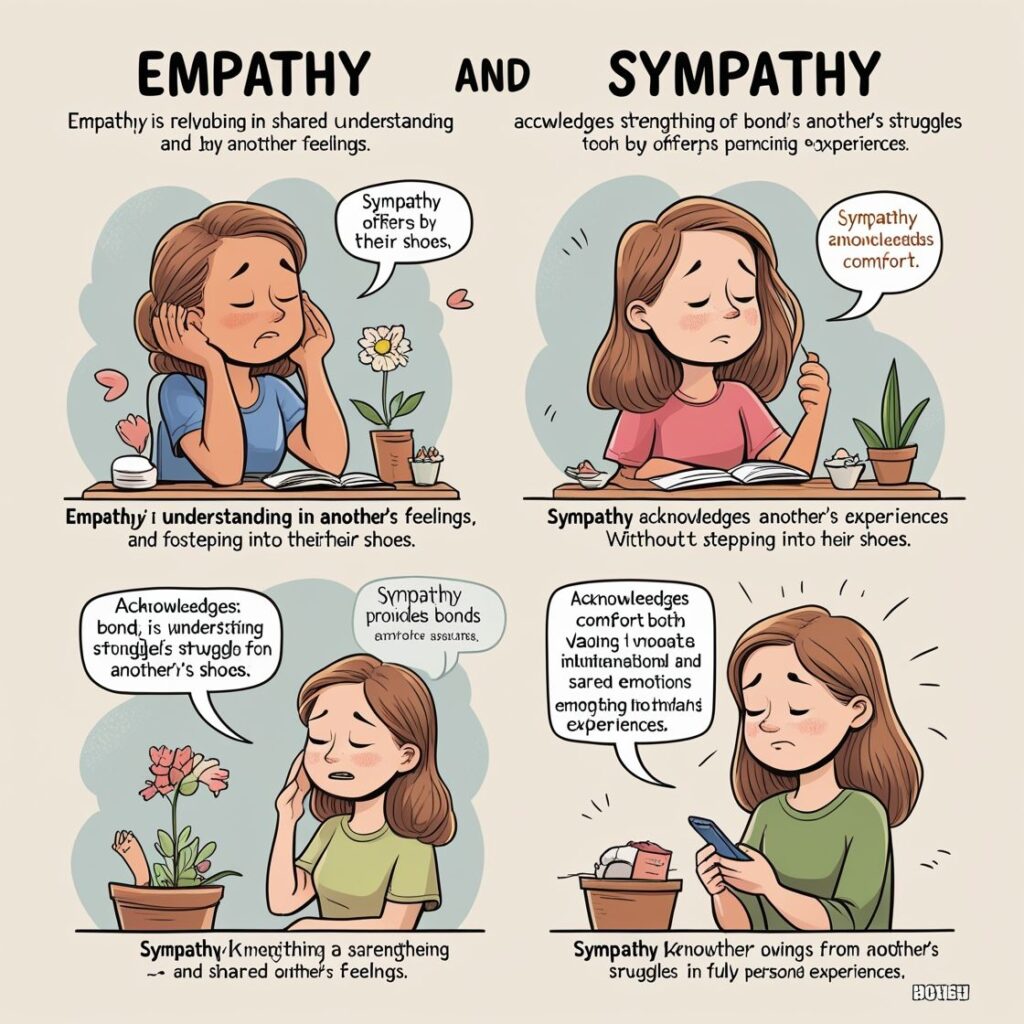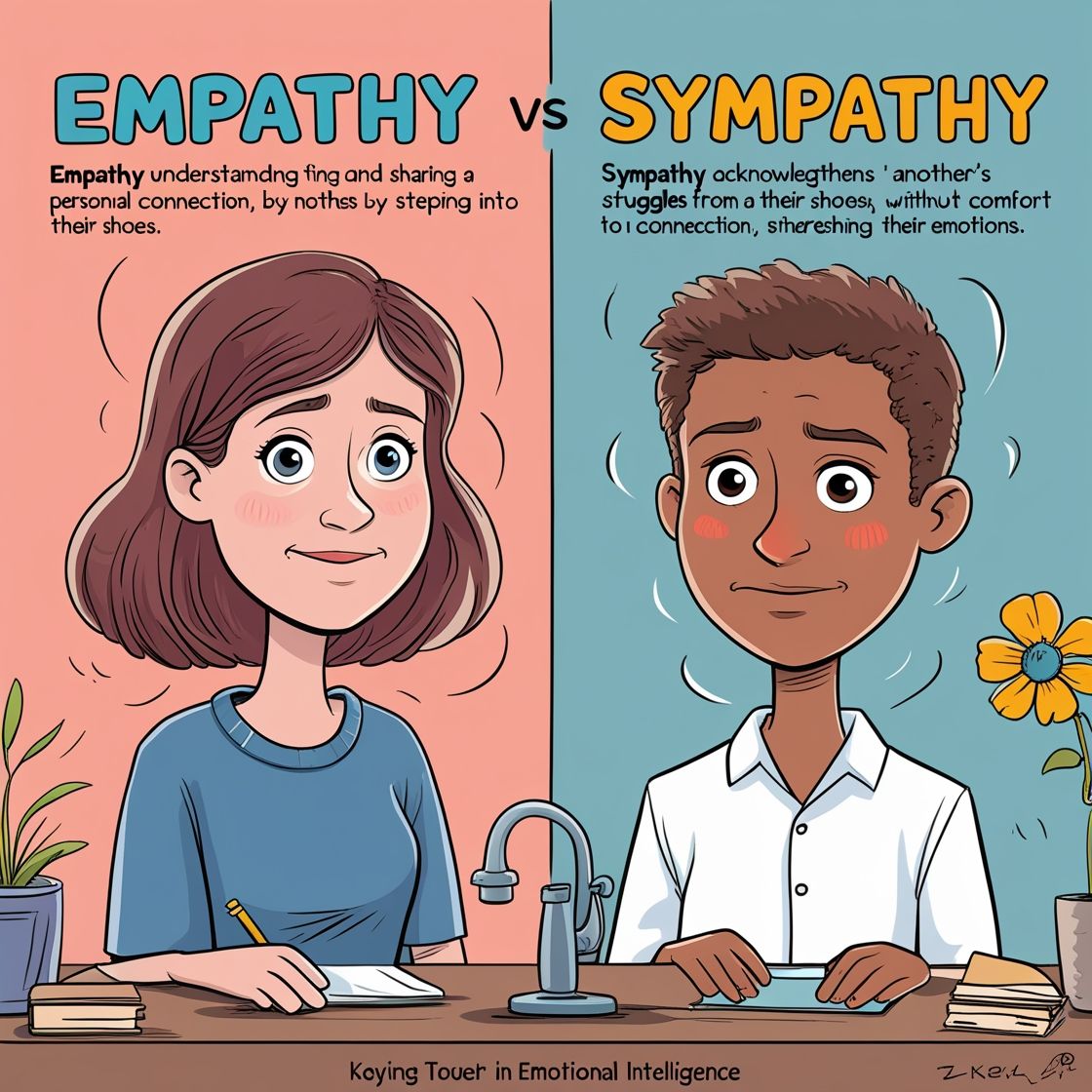Empathy vs Sympathy: Understanding the Difference, The concepts of empathy and sympathy are often used interchangeably, yet they hold distinct meanings and implications in human interactions. Both are rooted in emotions and reflect our ability to connect with others, but they differ significantly in their depth and impact. Understanding these differences is crucial for building meaningful relationships and fostering emotional intelligence.
Defining Empathy
Empathy refers to the ability to understand and share the feelings of another person. It involves stepping into someone else’s shoes and experiencing their emotions as if they were your own. Empathy requires an active effort to connect with the other person’s perspective without judgment.
For instance, if a friend loses their job, empathy means imagining the stress and fear they might feel, even if you have not experienced unemployment yourself. This emotional connection fosters a deeper understanding of their situation and often motivates supportive actions.
Empathy has three components:
- Cognitive Empathy: Understanding someone’s thoughts and emotions intellectually.
- Emotional Empathy: Sharing the feelings of another person on an emotional level.
- Compassionate Empathy: Acting to alleviate the other person’s suffering.
These layers enable empathetic individuals to resonate deeply with others while providing meaningful support.

Defining Sympathy
Sympathy, on the other hand, involves feeling pity or sorrow for someone else’s situation without necessarily sharing or deeply understanding their emotions. It is more about recognizing and acknowledging another person’s struggles from a distance.
For example, if a friend is grieving the loss of a loved one, expressing sympathy might involve saying, “I’m so sorry for your loss.” While this shows care and concern, it doesn’t necessarily reflect a shared emotional experience.
Sympathy often leads to offering comfort but lacks the immersive connection that empathy provides. It may result in kind gestures, but it can also risk creating a sense of separation, as it positions the supporter as an outsider looking in.
Key Differences Between Empathy and Sympathy
- Depth of Connection:
Empathy involves experiencing another’s feelings, while sympathy focuses on acknowledging those feelings without emotional immersion. - Perspective:
Empathy requires adopting the other person’s perspective. Sympathy, by contrast, often maintains an external viewpoint. - Impact on Relationships:
Empathy tends to strengthen bonds by fostering mutual understanding, whereas sympathy, though compassionate, may sometimes feel distant or superficial. - Emotional Involvement:
Empathy demands emotional engagement, which can be taxing but rewarding. Sympathy, being less involved, is often easier to extend.
The Importance of Empathy
Empathy plays a critical role in personal and professional relationships. It allows individuals to connect on a deeper level, reducing misunderstandings and enhancing communication. In workplaces, empathetic leaders create environments of trust and inclusivity, while in personal relationships, empathy fosters emotional intimacy and support.
Moreover, empathy is a cornerstone of emotional intelligence, helping individuals navigate complex social situations and respond with care and sensitivity.
When Sympathy is Appropriate
While empathy is ideal in many scenarios, there are times when sympathy is more appropriate. For example, in situations where maintaining emotional boundaries is necessary—such as in healthcare or counseling—sympathy can offer comfort without the emotional strain of empathy.
Balancing Empathy and Sympathy
Striking a balance between empathy and sympathy is essential. Over-empathizing can lead to emotional burnout, particularly for caregivers and professionals in high-stress fields. On the other hand, relying solely on sympathy may create emotional distance. Developing self-awareness and emotional boundaries can help navigate this balance effectively.
Conclusion
Both empathy and sympathy are valuable tools for emotional connection, each serving different purposes. Empathy allows for deeper understanding and shared experiences, while sympathy provides acknowledgment and comfort. By recognizing their differences and knowing when to employ each, individuals can build stronger, more compassionate relationships. Ultimately, mastering both is key to fostering a kinder, more connected world.

12 thoughts on “Empathy vs Sympathy: Understanding the Difference”
Comments are closed.